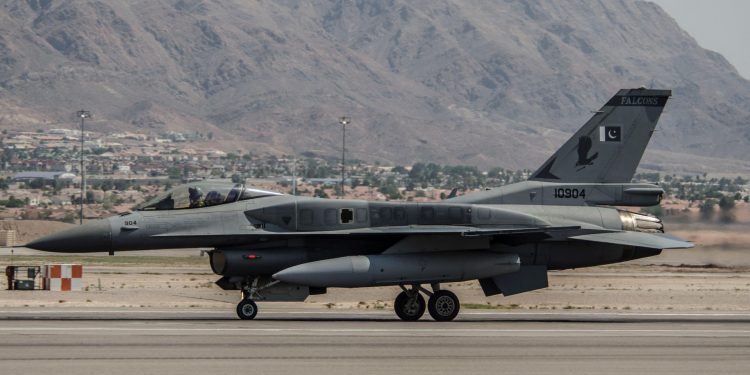ISLAMABAD: A Pakistani F-16 fighter jet crashed in Islamabad on Wednesday (Mar 11) in an apparent accident during a rehearsal for an upcoming military parade in the capital, officials said.
There was no immediate word on the fate of the pilot or co-pilot, or details on the area the plane crashed.
Footage on social media showed a large plume of smoke billowing into the sky after the plane plummeted to the ground having apparently attempted a loop.
“Pakistan Air Force reports with regret that a PAF F-16 aircraft crashed near Shakarparian, Islamabad during the rehearsals of 23rd March parade. Rescue teams have been dispatched towards the site of the crash,” the air force said in a statement.
Jet crash in Islamabad pic.twitter.com/z22peSkrAj
— Ch Kashif Ikram (@ChKashifIkram1) March 11, 2020
A second security official speaking on condition of anonymity also confirmed the crash.
The rehearsals were taking place before the annual military parade that is set to be held in Islamabad this month to celebrate Pakistan Day.
F-16 jets are among the most valuable defence hardware in the Pakistani military’s arsenal. The country has a fleet of about 50 F-16s, each worth at least US$40 million.
Pakistan has a chequered military and civilian aviation safety record, with plane and helicopter crashes frequent over the years.
Wednesday’s incident comes only months after a fighter jet crashed during a training mission near the city of Mianwali in eastern Punjab province, killing both pilots.
In July last year at least 18 people were killed when a small military plane belonging to the army crashed into a residential area in the Pakistani city of Rawalpindi.
And in 2016 a Pakistan International Airlines plane burst into flames after one of its two turboprop engines failed while travelling from remote northern Pakistan to Islamabad, killing more than 40 people.
Pakistan’s powerful military consumes a large portion of the country’s yearly budget, spending millions on sophisticated hardware in the impoverished nation, which critics say has come at the expense of investment in other sectors.











